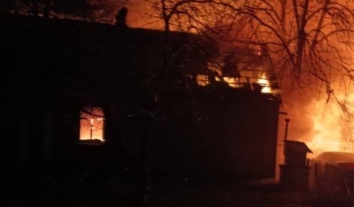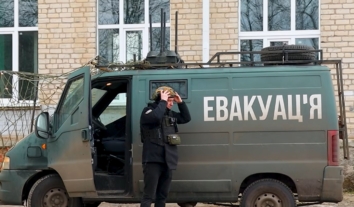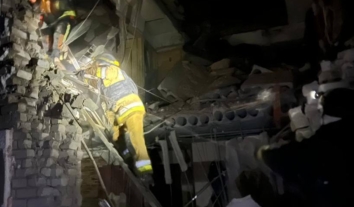“Unpunished evil grows”: Human Rights Center ZMINA calls for new mechanism to free Crimean political prisoners
During an expert discussion organised by the Centre for Democracy and Rule of Law, Victoria Nesterenko, the project manager of the ZMINA Human Rights Center, emphasized the need for a new mechanism to return Crimean political prisoners to Ukraine.
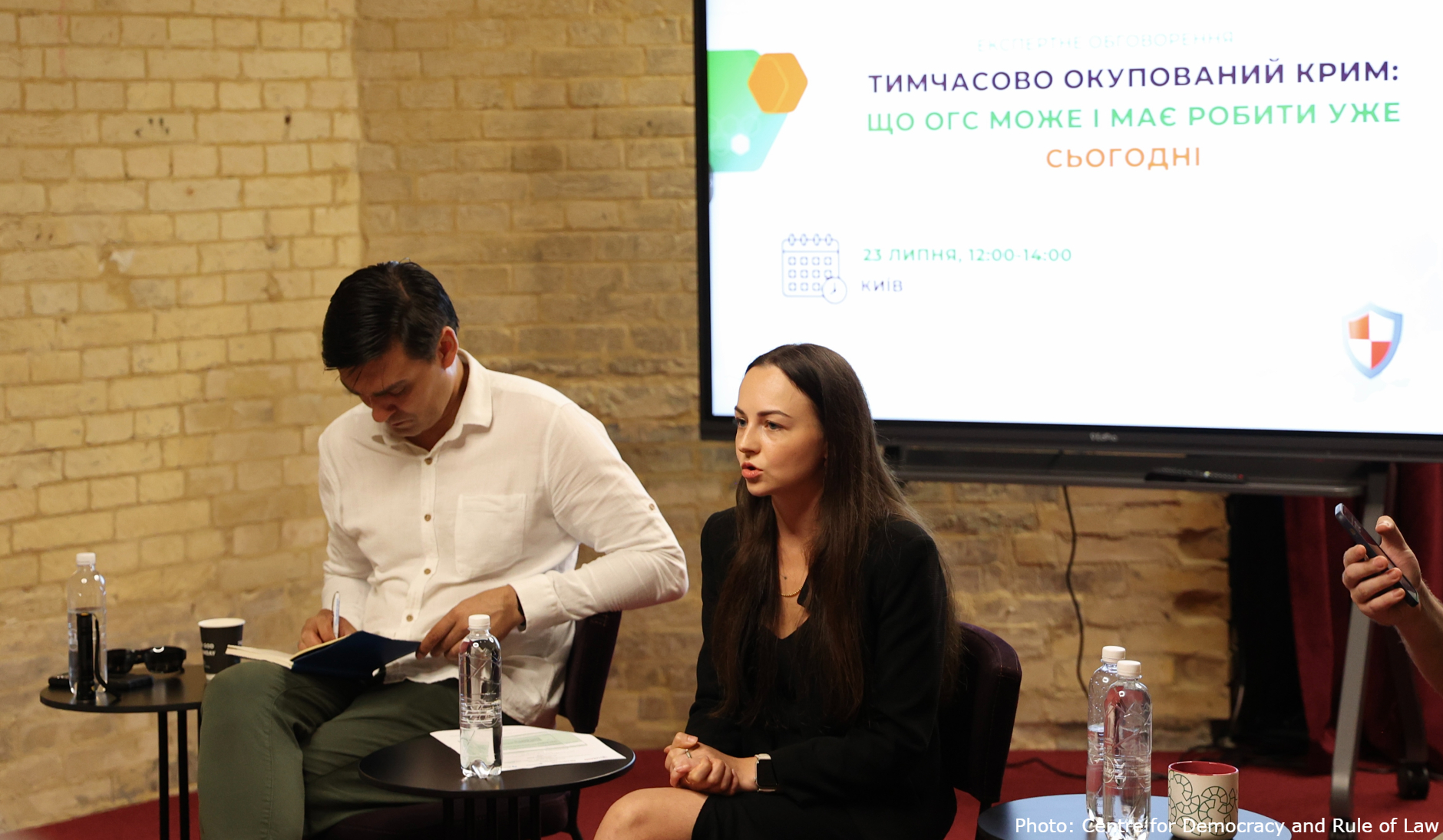 Viktoria Nesterenko
Viktoria NesterenkoShe highlighted that one of the ZMINA Human Rights Centre‘s key focus areas is defending political prisoners. While the current official count stands at 217 Crimean political prisoners, this list is not comprehensive.
“We are currently collaborating with human rights organisations to synchronise and reconcile the differences between our lists, Crimea SOS, the Crimean Human Rights Group and others. When we began compiling the names of people detained in Crimea and illegally convicted, our count reached around 250 people,” Nesterenko said.
To advocate for personal sanctions, ZMINA is also gathering information about Russian officials involved in the illegal persecution of Crimean residents, including FSB officials and illegal ‘judges’ who have made unlawful decisions.
“Unpunished evil only grows. Russia continues to illegally detain, convict, and transfer Crimean Tatars from Crimea to the Russian Federation. That's why we're taking action. We all understand that active Crimean Tatars on the peninsula face constant risk because Russia perceives them as a threat and imprisons them. As Nariman Dzhelial said, these people in Crimea are our agents of influence,” Nesterenko added.
She expressed gratitude to all parties involved in Nariman Dzhelial‘s release and stressed that Ukraine needs a new mechanism to bring back political prisoners.
“We cannot talk about liberating Crimea without the return of the Crimean Tatars, who are essential to Crimea’s existence,” she concluded.
By way of background, the European Court of Human Rights (ECHR) on June 25, 2024, delivered a judgment on the merits in the interstate case “Ukraine v. Russia (regarding Crimea)” – the first of four interstate cases with applications against Russia in connection with its war against Ukraine. The court in Strasbourg unanimously found that Russia had massively and systematically violated human rights in temporarily occupied Crimea. This concerns 14 articles of the European Convention on Human Rights and its protocols.
The ECHR analysed a significant amount of information and evidence from many sources, which the Ukrainian government provided. This evidence describes the arrests, detentions pending trial and convictions of Ukrainians by various types of “courts” created by the Russian Federation in Crimea. The evidence also included materials from the criminal cases of the respective prisoners.
The judges note that the application of Russian law was mandatory for all “courts” throughout Crimea, and it was applied to all court proceedings and all interested parties. This was enough for the ECHR to conclude that the “courts” in Crimea are not “established by law” within the meaning of Article 6 of the European Convention on Human Rights (Right to a Fair Trial) after the introduction of the so-called “Treaty of Accession” by Russia.
The ECHR found that the full-scale application of Russian law in Crimea is a violation of international humanitarian law and Article 7 of the European Convention on Human Rights on the impossibility of punishment without a law. After all, Russian law cannot be considered “law” for the measures taken in Crimea, within the meaning of the Convention.
According to the Mission of the President of Ukraine in the Autonomous Republic of Crimea, as of July 22, the Russian occupiers have illegally imprisoned 217 people, including 132 Crimean Tatars. Of the total number, 39 are currently arrested, including 28 Crimean Tatars, 149 are imprisoned, including 97 Crimean Tatars, and 28 are without status, inter alia, six Crimean Tatars.
In April 2024, the National Union of Journalists of Ukraine reported that at least 28 Ukrainian media workers and citizen journalists, including those in the temporarily occupied Crimea, are being held in captivity “as a result of illegal detentions, capture, false accusations, and sham “trials” by Russian occupiers in Ukraine”. The Union also published a list of imprisoned journalists.
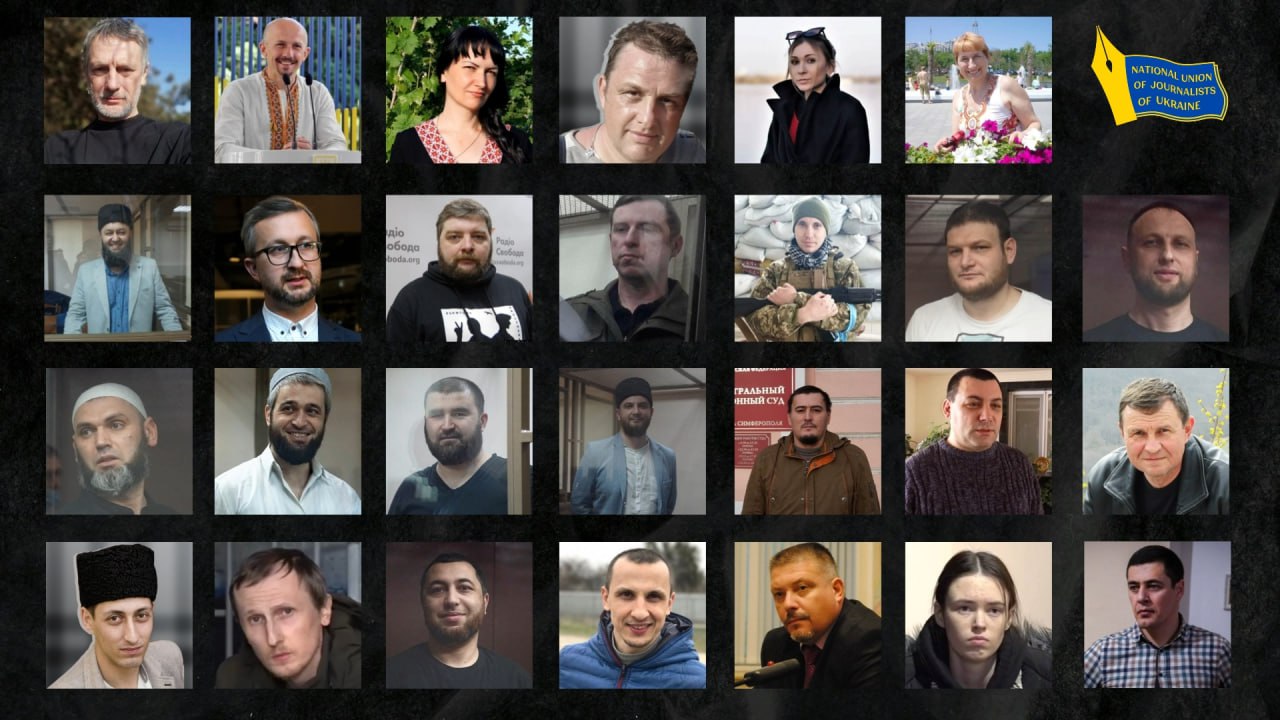
Earlier, the Committee to Protect Journalists (CPJ) called on the temporary authorities in the Russian-occupied Ukrainian peninsula of Crimea to stop intimidating journalist Lutfiye Zudiyeva and let members of the press work freely.
The human rights community in Ukraine also believes that the de-occupation of Crimea is necessary to stop the systematic violations of human rights committed by the Russian Federation on the peninsula. They are urging other countries to support Ukraine with timely and sufficient weapons and military equipment supplies towards this end.
Earlier, the human rights NGO Crimea SOS emphasised that ignoring the war crimes of the Russian occupiers has led to a deterioration of the human rights situation in the occupied Crimea. The lack of response from the international community to the occupation of Crimea and the further crimes of the occupiers made it easier for Russia to turn the peninsula into a springboard for the invasion of mainland Ukraine in 2022.
In July 2023, Wayne Jordash, the managing partner of Global Rights Compliance LLP, said that the International Criminal Court is not doing enough to investigate international crimes against civilians in the temporarily occupied Crimea.

